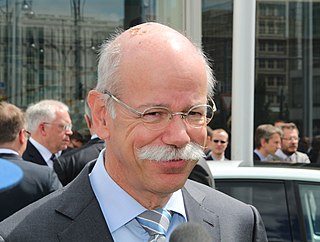A Quote by James O'Toole
Ed Lawler and I document that the key to creating good, productive jobs in all industries is to organize work processes and systems in ways that allow employees to contribute significant amounts of "added value" to the products they make and services they provide. When mangers give employees the organizational structure, resources, and authority needed for them to contribute their ideas and efforts, American workers, like those at Harley-Davidson, almost always prove capable of effectively competing against their overseas counterparts.
Quote Topics
Added
Added Value
Against
Allow
Almost
Always
American
American Workers
Authority
Capable
Competing
Contribute
Counterparts
Creating
Document
Eating Good
Effectively
Efforts
Employees
Give
Good
Harley
Ideas
Industries
Jobs
Key
Like
Make
Needed
Organizational
Organizational Structure
Organize
Overseas
Processes
Productive
Products
Prove
Provide
Resources
Services
Significant
Structure
Systems
Them
Those
Value
Ways
Work
Workers
Related Quotes
In a nutshell, the ability of American companies to compete in world markets depends on creating conditions in which workers can add sufficient value to justify their higher wages and benefits, much the Japanese auto manufacturers have done in this country. Until unions and mangers understand the necessity of effectively employing the nation's most important resource, the American worker, we are destined to have more Detroits.
There's a tremendous loss of talent to businesses who cannot make room for their employees to attend to family responsibilities. It really amounts to corporate waste: They hire really talented women and then lose them because they can't find ways to keep them productive and content the minute they can't "lean in."
Motorcycle manufacturer Harley-Davidson is a prime example of an American company that uses employment conditions to boost productivity. Current CEO James Ziemer - who started with the company while in high school has negotiated imaginative contracts with the unions representing Harley's workers, agreeing to keep production in the U.S. in exchange for constantly reducing total labor costs through automating tasks and changing work rules. Because Harley regularly reassigns workers whose tasks have been automated to other parts of the company.
If you have to conduct layoffs, which is always a regrettable thing, there's kind of three things that are very important. One is to communicate well with your employees in order to help them understand why it is you're doing, and how. Second is to make sure that the employees who are part of the go forward, understand kind of what happened and are not like the ground doesn't keep moving. It's like, okay, we did that, we're moving forward, here we go. And then for the employees that you unfortunately have to let go, try to provide as much support for them as possible.
With living wage jobs, basically 20 million of them to help jump-start a sustainable and healthy economy, with an insured, just transition, for example, for workers in both the fossil fuel and in the weapons industry, because they all need to transition to sustainable forms of production. This is also our answer to the departure of manufacturing jobs and good jobs by creating the manufacturing base here for clean renewable energy and the efficiency systems and public transportation to put these workers to work in jobs that are actually good for them.
Shareholder value is the result of you doing a great job, watching your share price go up, your shareholders win, and dividends increasing. What happens when you have increasing shareholder value? You're delivering better employees to their communities and they can give back. Communities are winning because employees are involved in mentoring and all these other things. Customers are winning because you're providing them new products.
The goal in life is the same as in basketball: make the effort to do the best you are capable of doing--in marriage, at your job, in the community, for your country. Make the effort to contribute in whatever way you can. You may do it materially or with time, ideas, or work. Making the effort to contribute is what counts. The effort is what counts in everything.
...remember the dangers of the New Groupthink. If it's creativity you're after, ask your employees to solve problems alone before sharing their ideas. If you want the wisdom of the crowd, gather it electronically, or in writing, and make sure people can't see each other's ideas until everyone has had a chance to contribute.
Some good employers provide people benefits. Many do not. The ones that do not tend to be the low end of the pay scale. This program will give those employers a way to support their employees. The employees will get this benefit, making it more likely that their employee will come back to them - that's a benefit for the employer over the long term and a benefit for the employee and all the while supporting families in their time of need.
Great law schools like Northwestern are here to expand the minds of their students, to allow them to achieve their personal goals, to enable them to contribute, to give back in ways that they could not without the education they receive here, and to help them make the greatest country in the world just a little more accessible, a little fairer.
People, materials, facilities, money, and time are the resources available to us for conducting our business. By applying our skills, we turn these resources into useful products and services. If we do a good job, customers pay us more for our products than the sum of our costs in producing and distributing them. This difference, our profit, represents the value we add to the resources we utilize.


































